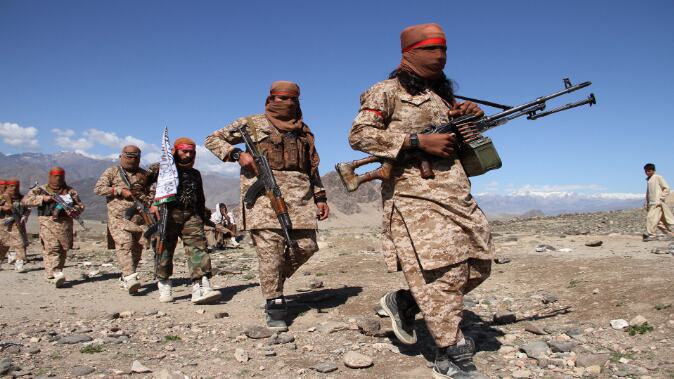No easy way out

In just under a week, the Taliban has successfully taken over nine provincial capitals in Afghanistan. The breakneck speed of the assault has alarmed analysts who have updated expectations for when the government in Kabul may fall to the Taliban. While the earlier assessment gave the government a year before the Taliban would be able to assert full military dominance, now some assessments give the Ashraf Ghani government as little as half a year. Though the Taliban's assault seems relentless at the moment, it is really built upon the momentum that the group first started gathering three months ago as the US began its rapid withdrawal from the region after 20 years of the war on terror. It took just these three months to sink Afghanistan back into an absolute threat of civil war that the country has not seen for decades. But it is important to note that information on the ground is not actually abundantly clear. For one, it is not immediately apparent as to which group controls how much area. It is understood that the Afghan government has generally abandoned periphery control and is concentrating its military force in defending scattered provincial strongholds throughout the nation. Though the Afghan government has always attempted to portray the military gains by the Taliban as having little overall significance, it is also finding it hard to refute a narrative where its military strongholds are essentially isolated cities and towns resisting a growing Taliban assault. But in the same regard, it is also important to question whether the Taliban itself is actually making as many gains in the area as they claim. In most cases, a Taliban 'victory' often refers to the group scattering defending forces in the region. There is little indication that the Taliban puts considerable effort into consolidating its hold over all its new territories. New shadow governments are not always put in place and garrisons are not left behind. This means that it is not at all impossible for the Afghan government or other militia groups to retake towns and cities from the Taliban. More importantly, the rapid Taliban blitz campaign is also prompting several former warlords, armed militia groups and mujahideens to pick up arms in an altogether overtly familiar fight against the expanding influence and control of the Taliban. Though the Ashraf Ghani government has always been notably averse to engaging with the old warlords due to concerns that they undermine the role of the Afghan army, now he seems willing to play along. Aside from ongoing efforts by the government to arm militias, Ghani also made an urgent trip this week to the city of Mazar-e-Sharif to negotiate the formation of a combined front with regional strongmen and warlords. The capital of Balkh province, Mazar-e-Sharif is seen as the lynchpin for the control of the northern provinces due to its location at a well-established crossroads and its reputation as a city that held out against the Taliban under Northern Alliance control in 1997. On Wednesday, Ghani is known to have held talks with politicians and local strongman Atta Mohammad Noor and the infamous Uzbek warlord, Abdul Rashid Dostum. Besides indicating the value of this city, Ghani seeking common ground with armed militias and warlords is a clear sign of desperation as well. Regardless of what the situation on the ground may actually be, the international community is clearly wary of the rapid deterioration of order in Afganistan. This week, India became the latest country to advise its citizens to leave Afghanistan as violence escalates. India has also temporarily closed its consulate in the city of Mazar-e-Sharif, around a month after it pulled out around 50 diplomats and security personnel from its consulate in Kandahar. On a diplomatic front, though India and other regional powers are engaged in re-initiating the stalled Afghan peace process between the government and the Taliban, the effort is proving to be anything but straightforward. As stated recently by Pakistan PM Imran Khan, the Taliban leadership does not wish to negotiate with the government so long as Ashraf Ghani is in charge. Give its general disposition towards power-sharing and its constant attacks on the government and security forces, there is considerable doubt over whether the group is actually looking for a compromise at all. To top it off, the UNSC is also hampered from taking any swift action in regards to Afghanistan and the Taliban due to the complicated politics unfolding between the regional powers who are left holding the pieces of the country after the abrupt US exit. India is just one of such stakeholders and must contend against the likes of China and Pakistan, two countries that do not wish for India to hold influence in the peace process. And the US? The Biden administration has made it abundantly clear that it will not stop the withdrawal at any cost. Considering that it hasn't decided to rush in it with the constant fall of provincial capitals, it also seems unlikely that the US will be investing significant military resources to holding back the Taliban onslaught. In such a situation, the Afghan government and people are left in the difficult position of holding off the Taliban in a situation of increasing desperation. Though there is hope that the Afghan government could consolidate its control over certain territories and hold off the Taliban, there is little hope that it alone could push back the group completely, even with the help of remobilising militias.



